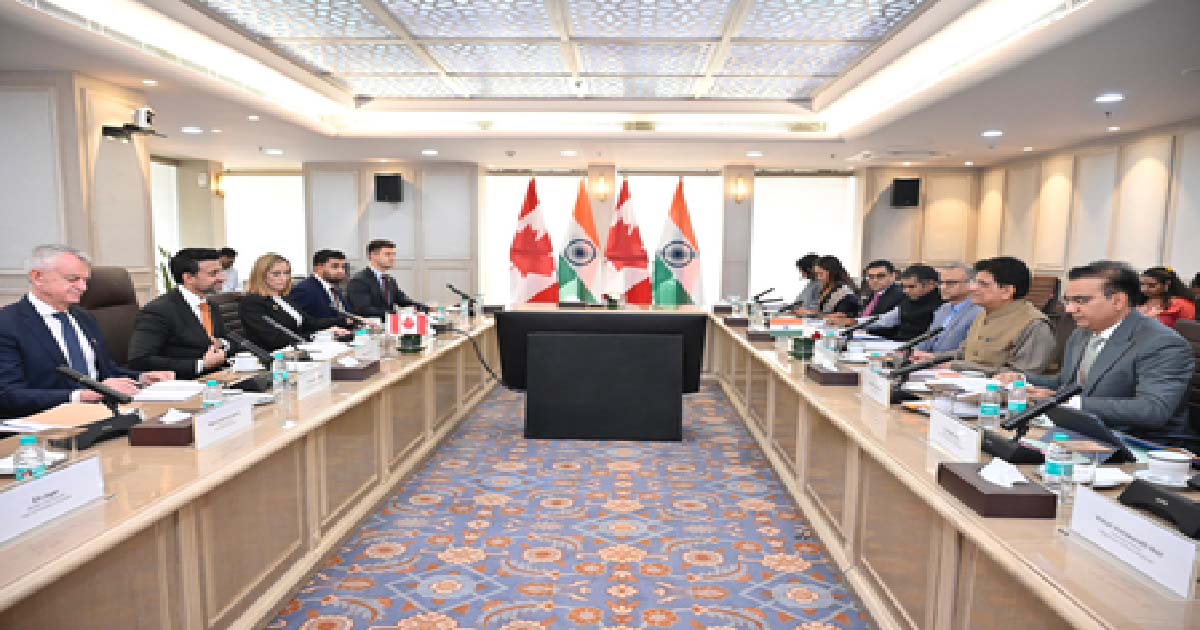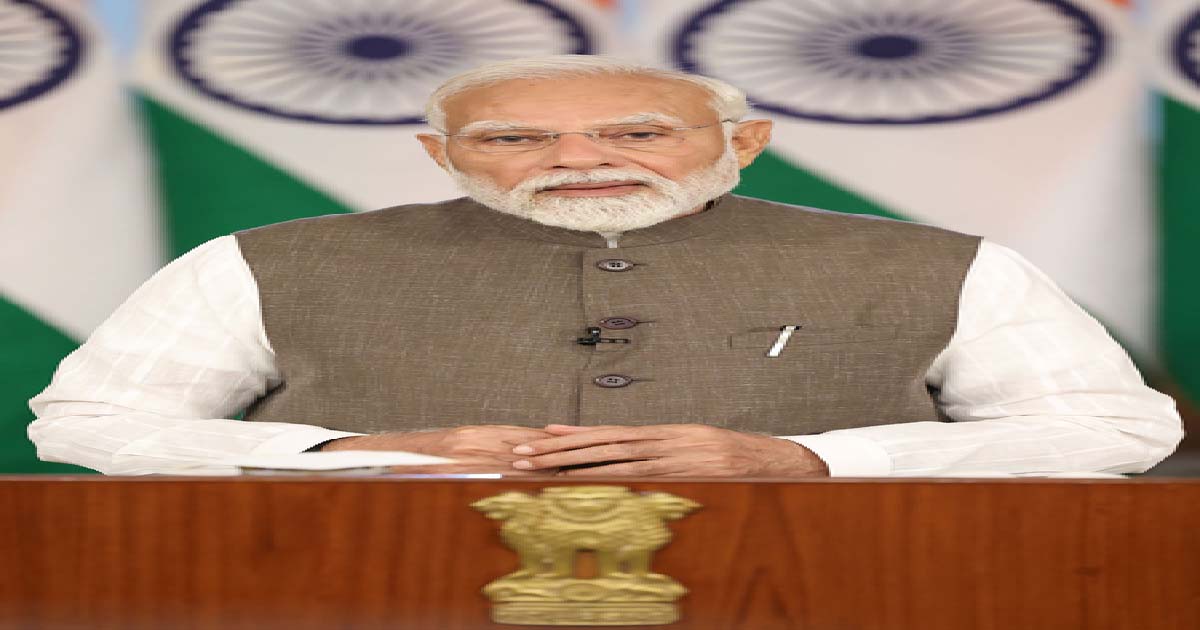Business
Indian retail investors seem unperturbed by the ‘FII Winter’

Even as the Indian stock markets are volatile and foreign institutional investors (FII) are selling their holdings the retail investors are continuing their investment.
“Indian retail investors are resilient. They form a significant part of the market,” Radhika Gupta, Managing Director and CEO, Edelweiss Asset Management Company told IANS.
She said even in the past, retail investors did not exit when markets went down and it is time to stop focusing on what FIIs do.
The Association of Mutual Funds of India (AMFI) estimates the total collections by the industry under the systematic investment plan (SIP) in May 2022 was Rs 12,286 crore, up from Rs11,863 crore collected in the month before that.
The total number of SIP accounts at the end of May 2022 was more than 5.48 crore, up from 5.39 crore, but the number of new SIP accounts opened last month was 19.75 lakh, down from 21.82 lakh accounts in April 2022.
The SIP assets under management (AUM) at the end of May 2022 was Rs 565,706 crore down from Rs 578,086 crore at the end of April 2022, said AMFI.
“This is the first time in many years that investors’ optimism is being tested. Also, the number of retail investors have ballooned in recent years. Many of these are Do-It-Yourself (DIY) investors who rely on ‘finfluencers’ for advice and (often gamified) fintech platforms for execution,” Jayant R Pai, Head Products and Chief Marketing Officer, told IANS.
According to him, such investors are likely to be more unsettled, compared to those who rely on Financial Planners for advice.
“Hence, it is possible that some SIPs may be cancelled in case this continues for a few more months. Perhaps a perceptible uptick in the number of SIPs being cancelled may also serve as a contrarian indicator (of the market bottoming out),” Pai said.
As per AMFI figures, the number of SIPs discontinued/tenure completed last month was 10.36 lakh down from 10.53 lakh in April 2022.
Gupta said the market is structurally upward in the long term.
Queried whether retail investors continue to invest is an off beat trend Gupta refuted that and added the numbers are steady and SIPs are expected to grow.
She also added that India is a big country and more people will enter the market and one should focus on the investment goals rather than looking at what FIIs do.
On the factors that make FIIs to sell out Pai said: “High food and fuel inflation leading to fear of a tighter monetary regime (which is coming to pass now). Fear of emerging market currencies being adversely affected as a result of the tightening. War in Ukraine, catalysing attendant geo-political tensions and light-to-safety.”
The interest rates in their home country will also make FIIs exit the market, Gupta said.
On the quantum sold by FIIs and purchases by the domestic institutional investors (DII) Pai said: “January to June 2022 figures depict that FIIs sold (net) Rs 2.62 lakh crore while DIIs purchased (net) Rs 2.07 lakh crore. Hence the ballast provided by the DIIs played a key role in cushioning the trajectory of the decline. However, the desultory investment environment has ensured that they could not alter the direction.”
He said the DIIs will have to hunker down for a while. However, those who are investing with their financial goals in mind and can remain invested for at least five years from today, ought not to feel too perturbed about the ‘FII winter’.
Business
India, Canada discuss ways to boost bilateral trade, promote investments

New Delhi, Nov 13: Commerce and Industry Minister Piyush Goyal and Maninder Sidhu, Canada’s Minister of International Trade, discussed ways to further boost bilateral trade and promote investments, it was announced on Thursday.
Sidhu is in India to find opportunities to advance trade and investment linkages between the two nations.
“It was a pleasure to co-chair the 7th India-Canada Ministerial Dialogue on Trade and Investment as part of the New Roadmap 2025 along with @MSidhuLiberal, Canada’s Minister of International Trade,” Goyal posted on the X social media platform.
The minister further stated that they discussed “avenues to strengthen bilateral trade, promote investments and deepen cooperation between our countries”.
During his India visit, Sidhu is set to promote Canada’s commitment to supporting and growing the well-established commercial ties shared by Canada and India, including artificial intelligence, clean technology and digital industries, and explore new opportunities for partnerships that benefit workers and businesses in both countries.
“This visit to India will reinforce Canada’s commitment to diversifying our trade relationships and attracting new investment,” an official statement quoting Sidhu said. “As one of the fastest-growing major economies, India offers significant opportunities for Canadian businesses and workers. Our commercial ties continue to expand — bilateral trade surpassed $30 billion in 2024 — and there is even greater potential ahead,” the statement added.
India is a key partner as Canada strengthens its economic links in the Indo-Pacific region under a comprehensive strategy for the region. In 2024, India was Canada’s seventh-largest goods and services trading partner, with two-way trade valued at $30.9 billion.
Meanwhile, External Affairs Minister (EAM) S. Jaishankar and his Canadian counterpart, Anita Anand, held discussions on strengthening cooperation across key sectors, including trade, energy and security. Both leaders met on the sidelines of the G7 Foreign Ministers’ Meeting in Niagara.
EAM Jaishankar also praised the progress made under the New Roadmap 2025, aimed at enhancing bilateral ties between India and Canada and expressed hope for rebuilding a stronger partnership.
Business
ED arrests Jaypee Group chief Manoj Gaur in money laundering case

New Delhi, Nov 13: The Enforcement Directorate (ED) has arrested Manoj Gaur, Managing Director of Jaypee Infratech Limited, in a money laundering case linked to the alleged siphoning of money paid by homebuyers for the construction of flats, according to sources on Thursday.
The Enforcement Directorate had in May carried out searches at 15 premises linked to Manoj Gaur’s flagship real estate development companies — Jaypee Infratech Ltd., and Jayprakash Associates Ltd, as well as their associated entities.
During the operation, officials seized hard cash to the tune of Rs 1.7 crore, along with financial records, digital data, and property documents registered in the names of promoters, their family members, and group companies.
The raids were carried out across Delhi, Mumbai, Noida, and Ghaziabad as part of an ongoing investigation under the Prevention of Money Laundering Act (PMLA).
IDBI Bank had first filed a petition against Jaypee Infratech Limited (JIL) in the National Company Law Tribunal (NCLT), Allahabad, after JIL defaulted on a payment of over Rs 526 crore. The NCLT initiated the insolvency process on August 9, 2017.
The insolvency case gained national attention due to over 21,000 homebuyers who had booked flats in JIL projects being left in the lurch as money had been diverted from construction projects, primarily in Wish Town, Noida.
The Supreme Court intervened to protect their interests, eventually leading to an amendment to the IBC that classified homebuyers as financial creditors, giving them a vote in the resolution process.
The case involved extensive legal proceedings, including disputes over transactions where JIL’s assets were mortgaged to secure the debts of its parent company, Jaiprakash Associates Limited (JAL).
After several rounds of bidding, the National Company Law Appellate Tribunal (NCLAT) approved a resolution plan submitted by the Suraksha Group in May 2024. Under this plan, Suraksha is to complete the unfinished projects and pay enhanced compensation to farmers as part of the land acquisition terms.
Business
Latest Cabinet decisions to ensure global competitiveness, boost self-reliance: PM Modi

New Delhi, Nov 13: Prime Minister Narendra Modi on Thursday said that the latest Union Cabinet decisions will ensure global competitiveness for the Indian exporters, while bolstering sustainability and self-reliance for domestic companies, especially MSMEs.
The Union Cabinet, chaired by PM Modi, on Wednesday approved the Export Promotion Mission (EPM), with an outlay of Rs 25,060 crore, to strengthen India’s export ecosystem. The flagship initiative was announced in the Union Budget 2025-26 to strengthen India’s export competitiveness, particularly for MSMEs, first-time exporters, and labour-intensive sectors.
“Ensuring ‘Made in India’ resonates even louder in the world market! The Union Cabinet approved the Export Promotion Mission (EPM), which will improve export competitiveness, help MSMEs, first-time exporters and sectors that are labour-intensive. It brings together key stakeholders to build a mechanism that is outcome based and effective,” PM Modi said in a post on the X social media platform.
The Cabinet also approved the introduction of the Credit Guarantee Scheme for Exporters for providing 100 per cent credit guarantee coverage to member lending institutions for extending additional credit facilities up to Rs 20,000 crore to eligible exporters, including MSMEs.
“The Credit Guarantee Scheme for Exporters which has been approved by the Cabinet will boost global competitiveness, ensure smooth business operations and help realise our dream of an Aatmanirbhar Bharat,” said the Prime Minister.
In yet another important decision, the Union Cabinet approved the rationalisation of royalty rates for four critical minerals — graphite, caesium, rubidium, and zirconium. The royalty rates have been specified or revised as follows: caesium and rubidium will each attract a 2 per cent royalty based on the average sale price (ASP) of the respective metal contained in the ore produced.
PM Modi said that this Cabinet decision “will boost sustainability and self-reliance. It will strengthen supply chains and create job opportunities as well”.
An increase in indigenous production of these minerals would lead to a reduction in imports and supply chain vulnerabilities, and also generate employment opportunities in the country.
-

 Crime3 years ago
Crime3 years agoClass 10 student jumps to death in Jaipur
-

 Maharashtra1 year ago
Maharashtra1 year agoMumbai Local Train Update: Central Railway’s New Timetable Comes Into Effect; Check Full List Of Revised Timings & Stations
-

 Maharashtra1 year ago
Maharashtra1 year agoMumbai To Go Toll-Free Tonight! Maharashtra Govt Announces Complete Toll Waiver For Light Motor Vehicles At All 5 Entry Points Of City
-

 Maharashtra1 year ago
Maharashtra1 year agoFalse photo of Imtiaz Jaleel’s rally, exposing the fooling conspiracy
-

 National News1 year ago
National News1 year agoMinistry of Railways rolls out Special Drive 4.0 with focus on digitisation, cleanliness, inclusiveness and grievance redressal
-

 Maharashtra12 months ago
Maharashtra12 months agoMaharashtra Elections 2024: Mumbai Metro & BEST Services Extended Till Midnight On Voting Day
-

 National News1 year ago
National News1 year agoJ&K: 4 Jawans Killed, 28 Injured After Bus Carrying BSF Personnel For Poll Duty Falls Into Gorge In Budgam; Terrifying Visuals Surface
-

 Crime1 year ago
Crime1 year agoBaba Siddique Murder: Mumbai Police Unable To Get Lawrence Bishnoi Custody Due To Home Ministry Order, Says Report












